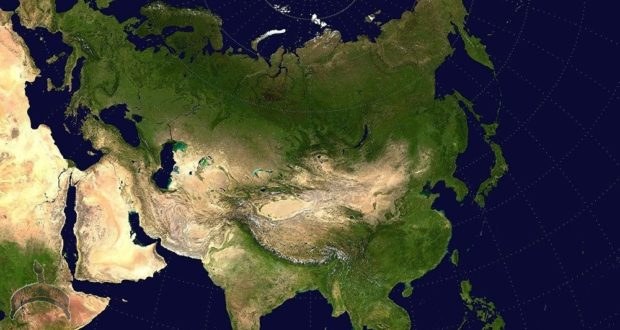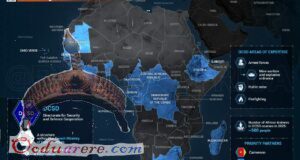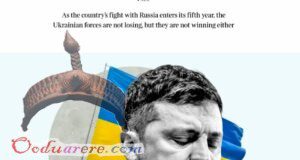by Pepe Escobar (cross-posted with the Asia Times by special agreement with the author)
The Russia-led Eurasia Economic Union is spreading its wings and gaining strength, with some key projects, big players and big plans in the pipeline
As presidents Vladimir Putin, Hassan Rouhani and Recep Tayyip Erdogan met in Ankara for a second Russia-Iran-Turkey summit on the future of Syria, Moscow hosted its 7th International Security Conference attended by defense ministers from dozens of nations.
A more graphic illustration of the synchronicity drive towards Eurasia integration would be hard to find.
Crucially, China sent not only a high-ranking delegation to Moscow, but most of all a loud and clear message. General Wei Fenghe, the new Chinese Defense Minister, side by side with Russian counterpart Sergey Shoigu, said: “The Chinese side came to let the Americans know about the close ties between the Russian and Chinese armed forces.” Shoigu, for his part, underlined the “special character” of the Russia-China partnership.
Even before the meeting the Global Times stressed the point that non-stop Russia demonization coupled with the now rolling US-China trade war will only strengthen the “special character” partnership.
And then Iran’s Defense Minister, Brigadier General Amir Hatami, expanded the scope, saying “foreign plans” related to security in the Middle East would inevitably fail – they must be hatched within Southwest Asia.
What happened in Moscow necessarily must be crossed over with what happened in Ankara.
A common commitment
The first Russia-Iran-Turkey trilateral meeting on Syria was in Sochi on November 22 last year. Sochi led to the formation of the Syrian National Dialogue Congress and a 150-strong committee tasked to draft a new constitution for Syria. All these procedures essentially follow guidelines established by the 2012 Geneva peace process. Even the UN praised Sochi as “an important contribution to a revived intra-Syrian talks process.”
For the Ankara meeting, the foreign ministers of Russia (Sergey Lavrov), Iran (Mohammad Javad Zarif) and Turkey (Mevlut Cavusoglu) met in Astana in early April to prepare the terrain.
The final joint statement is unmistakable, emphasizing their common commitment to the sovereignty, unity, independence and territorial integrity of Syria.
The fact that Ankara is Putin’s first foreign trip after reelection speaks volumes. The Russia-Iran-Turkey strategy on Syria, incrementally developed in Astana, established a delicate balance of de-escalation zones – the Damascus suburb of eastern Ghouta, Idlib, Homs and the Syrian-Jordanian border – and humanitarian corridors, allowing scores of civilians to leave war zones, especially in the case of Ghouta.
The war in Ghouta against a jihadi galaxy has been all but won by the Syrian Arab Army (SAA), supported by a Russian mix of air support and negotiation skills and, significantly, no input from Iranian military commanders. So-called “moderate rebel” remnants were dispatched to Idlib. Damascus is free from shelling. That was the SAA’s biggest victory after the liberation of Aleppo in December 2016.
Northern Syria, however, remains a much trickier proposition, as we have a de facto NATO versus NATO subplot; Turkish troops versus the YPG Kurds, a proxy US force.
The fact that the SAA-Russia offensive in eastern Ghouta happened in parallel to the neo-Orwellian Operation Olive Branch by the Turks in the Kurdish canton of Afrin spells out a complex Russia-Iran-Turkey deal worked out in Astana – as diplomats confirmed to Asia Times.
As much as Tehran may be exasperated by Turkish military incursions into Syria, by ordering Iranian commanders not to interfere in both eastern Ghouta and Afrin, Tehran made sure Ankara would not derail the extermination, and or transfer of jihadis threatening Damascus.
The key discussion at the trilateral summit in Ankara was about what happens next to Idlib – now the ultimate jihadi “moderate rebel” refuge, where Hayat Tahrir al-Sham, which is connected to al-Qaeda, is fighting a Syrian Liberation Front backed by Turkey that also happens to harbor hardcore jihadis such as Ahrar al-Sham.
It will all hinge on whether Ankara will be able to persuade this congregation of nasty forces that the war is in fact over. Otherwise, the SAA, backed by Russian airpower, will embark on yet another bombing campaign, potentially adding extra hundreds of thousands of refugees to the 3.5 million already holed up inside Turkey’s borders.
What is certain is that Ankara does not feel inclined to leave Syria’s northwest and north-central areas anytime soon. How Moscow and Tehran – not to mention Damascus – will react is an (explosive) open question.
Get me my S-400s on time
The Russia-Turkey partnership is all business – centered on a crucial energy, nuclear and weapons triangle.
Russia, “at the onset of the creation of the nuclear industry in Turkey,” according to presidential aide Yury Ushakov, will start building Turkey’s first nuclear power plant at Akkuyu at a cost of $20 billion. The first reactor is expected to be ready by 2023, and the plant will be owned by Russia.
Following a contract signed last December, Moscow will also deliver the S-400 surface-to-air defense system to Ankara before 2020, earlier than expected, “at the request of our Turkish friends and partners,” according to Putin. NATO is not exactly pleased.
And then there’s the $12 billion Turk Stream gas pipeline, which is a work-in-progress – with the overland segment about to receive a go-ahead permit from Ankara. Several EU members are not exactly pleased.
All that spells out Russian diplomacy carefully strengthening relations with pinpointed EU-NATO member states. Even as the ultimate target may be to convince NATO to de-escalate from Russia’s western borderlands, or from the Cold War 2.0 Iron Curtain from the Baltic to the Black Sea, that’s still a long way from a game-changer such as Turkey actually ditching NATO.
A stalemate would certainly be reached as a concerted Russia-China charm offensive may lead Erdogan to consider the benefits of joining the Shanghai Cooperation Organization (SCO). Ankara is deepening its business ties with both Pakistan, a full SCO member, and Iran, now on observer status and about to become a full member.
Russia, China and Iran are the three key vectors of Eurasia integration, which includes everything from Pipelineistan to trade connectivity networks. Erdogan does not covet the role of sideshow spectator.
And just like clockwork, an extra Russia-Iran integration node may be added as Tehran is expected to join the Russia-led Eurasia Economic Union (EEU) before the end of the year. The free trade EEU – now harboring Russia, Kazakhstan, Belarus, Kyrgyzstan and Vietnam – is attracting interest from everyone from China, India and Indonesia to Serbia, Israel and South American nations. Erdogan is certainly paying attention.
And now it’s time to rebuild
From the start, Syria was a Pipelineistan war. A key target was to ditch the prospect of a $10 billion Iran-Iraq-Syria gas pipeline – a memorandum of understanding was signed in 2011 – and replace it with a Qatar to Turkey pipeline via a regime-changed Syria.
Qatar and the House of Saud ended up certified geopolitical losers in Syria. The Saudi blockade of Qatar failed miserably. The new equation reveals Qatar – supported by Oman and Kuwait – getting closer to Iran and even closer to Turkey.
Ankara operates the Tariq bin Ziyad military base in Qatar. Iran and Qatar are deepening cooperation in South Pars – the largest gas field on the planet. Stranger things have happened than foreseeing a pipeline finally being completed in the near future, carrying Iran-Qatar gas and transiting through Turkey, even as Russia and China remain actively involved in the Qatari gas industry.
With the prospect of Syrian reconstruction finally at hand, Beijing will turbo-charge its plans to turn Syria into a key Belt and Road Initiative (BRI) node.
On the Russian front, Energy Minister Aleksandr Novak has confirmed that energy giants Lukoil and Gazprom Neft are already focused on rebuilding – and developing – Syria’s badly damaged energy infrastructure, following a cooperation roadmap signed last February.
The Russian companies have been invited to upgrade the Baniyas refinery and to build a new refinery in partnership with Iran and Venezuela. Damascus and Moscow will launch a direct shipping line to facilitate trade and set up a bank controlled by their own central banks.
According to Syrian Prime Minister Wael al-Halqi, nearly US$1 billion worth of agreements on energy, trade and finance have already been signed. Previously, Syrian Ambassador to Russia Riyad Haddad promised that nations which helped Syria fight terrorism “have the right to be at the forefront” of those restoring the country’s economy.
That means, essentially, Russia, Iran and China. It remains to be seen what role – if any – will be played by Erdogan’s new Ottomanism.
 Ọmọ Oòduà Naija Gist | News From Nigeria | Entertainment gist Nigeria|Networking|News.. Visit for Nigeria breaking news , Nigerian Movies , Naija music , Jobs In Nigeria , Naija News , Nollywood, Gist and more
Ọmọ Oòduà Naija Gist | News From Nigeria | Entertainment gist Nigeria|Networking|News.. Visit for Nigeria breaking news , Nigerian Movies , Naija music , Jobs In Nigeria , Naija News , Nollywood, Gist and more









